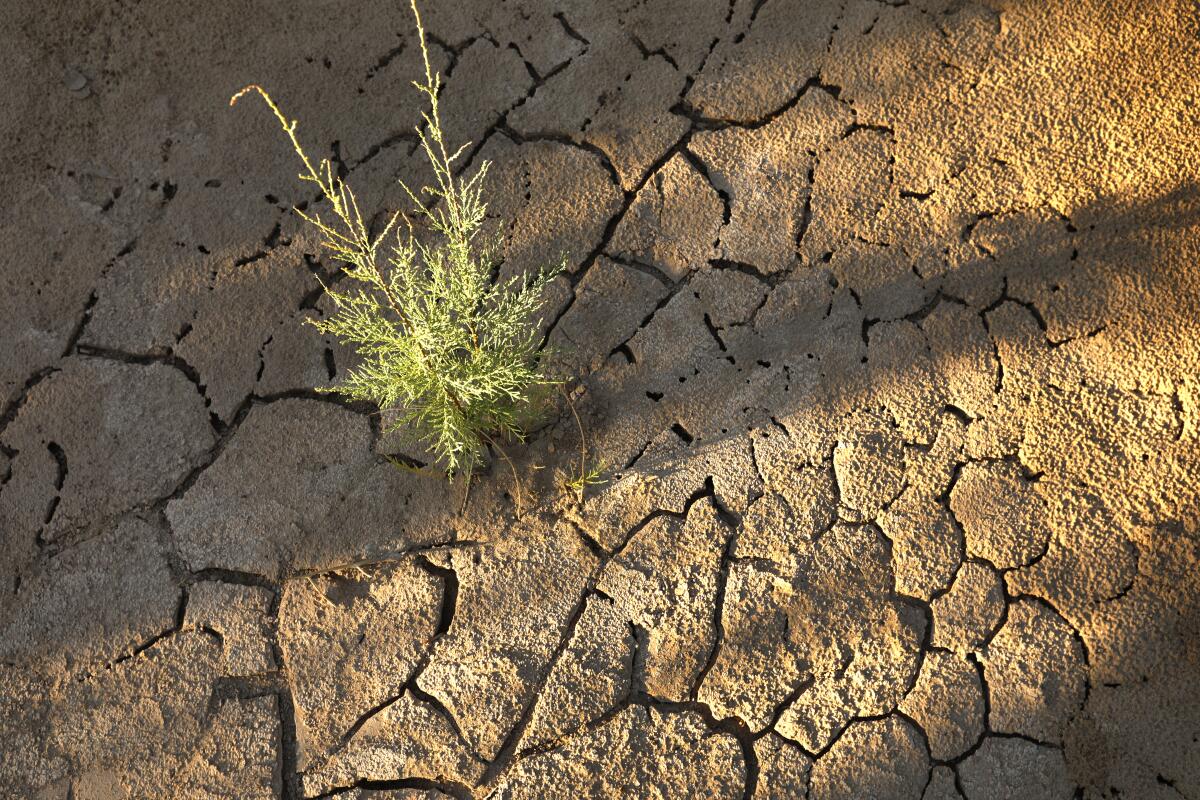Letters to the Editor: To save the Colorado River, start from scratch on divvying water

- Share via
To the editor: The headline “At the heart of Colorado River crisis, the mighty ‘Law of the River’ holds sway” is somewhat misleading. The heart of the water crisis is Mother Nature not supplying enough precipitation for the Colorado River basin to meet the demands of the water-using states.
The “Law of the River” is man’s law, and Mother Nature’s bounty trumps man’s law.
The seven states that rely on the Colorado River must adjust their needs to what water is available based on percentages that can be negotiated. They should ignore the outdated “Law of the River” pact.
As water availability varies, the states should ration usage based on priorities. Ornamental watering gets cut first, then thirsty crops such as almonds and cotton go next.
This is the only way we can live according to what’s actually available from the Colorado River.
Carl Mariz, Irvine
..
To the editor: Using the terms “Law of the River” and doctrine imply some amorphous, illogical agreement held by old-time settlers. The implication is misleading and wrongheaded.
Water rights are standing law and are a form of property rights that have been thoughtfully litigated over the years. Acre-feet agreements, not percentages, were used because both crops and people need constant, regularly supplied quantities of a precious yet often unreliable resource.
The “Law of the River” is not why we’re in this mess in the first place. We are in this situation because greedy politicians are enriched by indiscriminate agricultural, recreational and housing land developers. These are the same politicians who allow many other types of environmental degradation and destruction.
Barbara Snider, Huntington Beach
..
To the editor: This article brings to mind the Paolo Bacigalupi novel “The Water Knife.” Although a brutally graphic tale surrounding water rights, it seems increasingly prescient when reading of the entrenched views surrounding those “rights” in California and our neighboring states.
The hard fact remains that there may very well be a battle looming.
Roy Stone, San Diego
..
To the editor: A rarely mentioned fact about the consumption and distribution of increasingly scarce Colorado River water is that a significant portion of “thirsty” crops such as alfalfa grown in the desert environment of the Imperial Valley is sold and shipped overseas.
This “virtual water” is a precious U.S. national resource that is being sold at a deeply discounted price to foreign nations, some of which engage in horrific human rights violations. This practice must cease.
Linda Iverson, Pasadena






